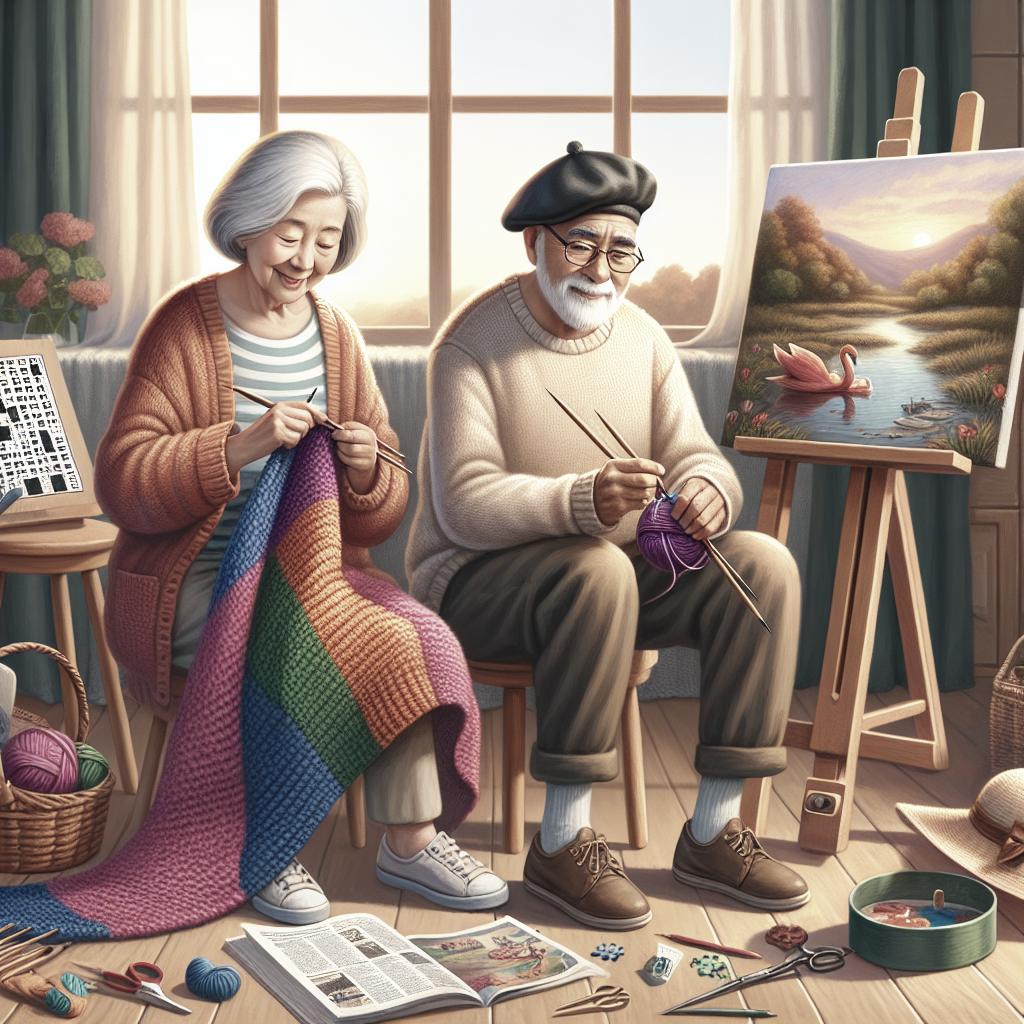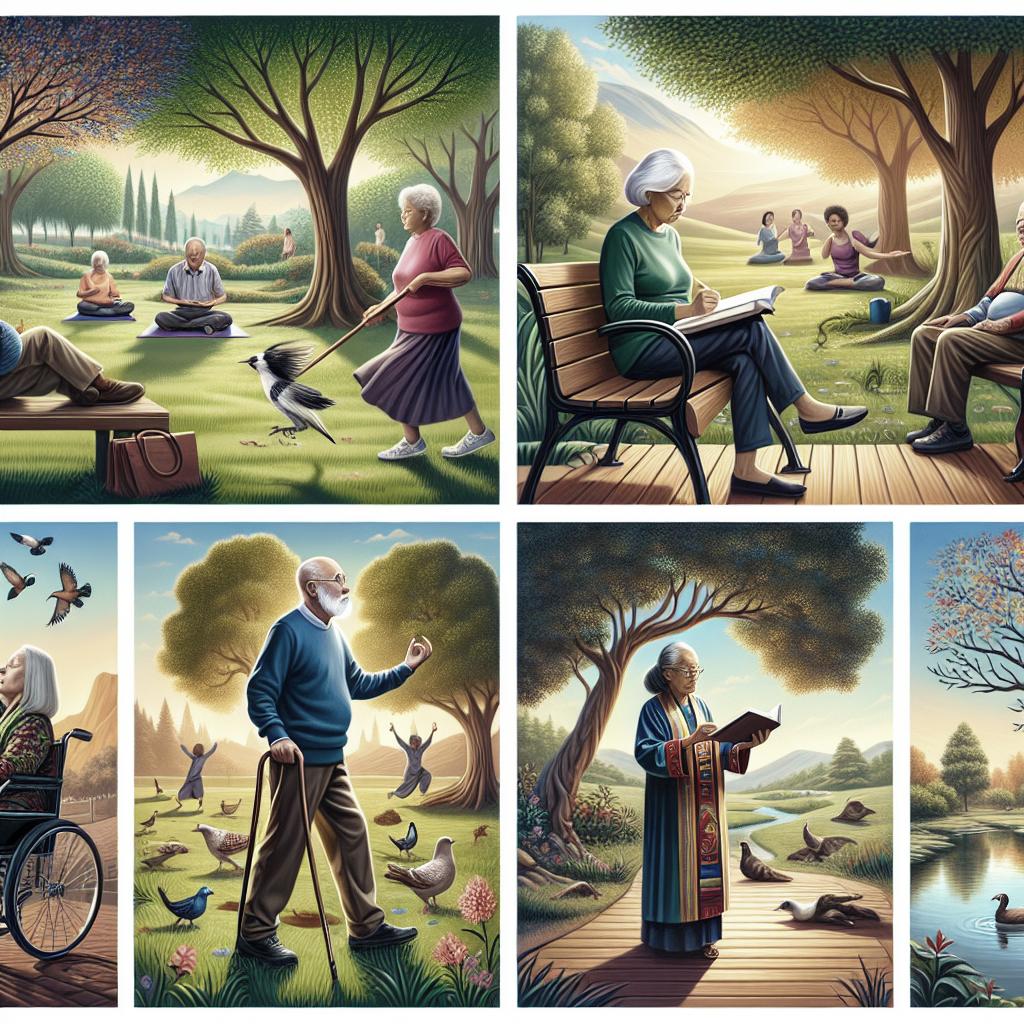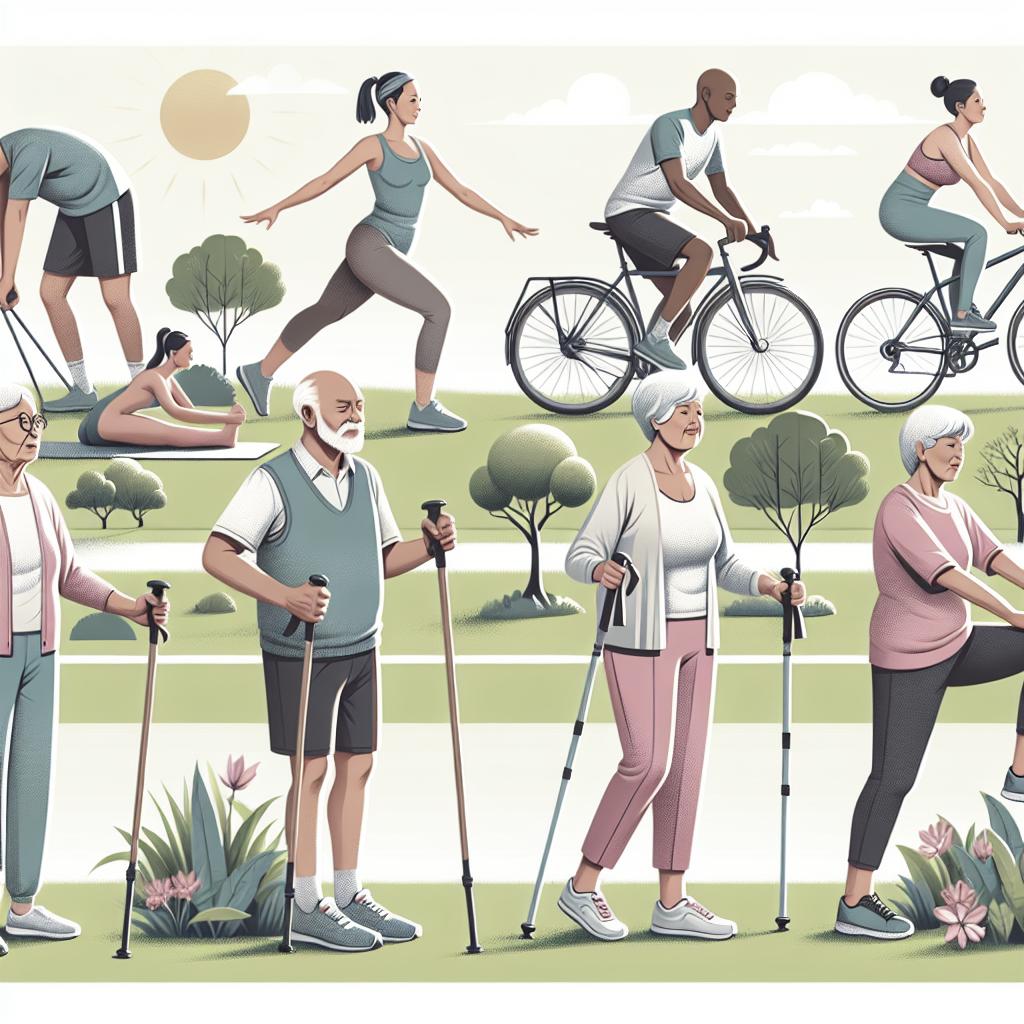<>
As we journey through the golden years, hobbies become more than just a pastime; they can provide a sense of purpose, strengthen social connections, and significantly impact mental and physical well-being. This blog delves into why hobbies are crucial for senior citizens and presents an array of enjoyable activities perfectly suited for them. From arts and crafts to learning new skills, discover how each hobby can enrich the lives of elderly people. Dive into this comprehensive guide and uncover the myriad ways to stay active, engaged, and fulfilled in your later years, making 2024 your best year yet.
Why are hobbies important for elderly people?
Hobbies play an essential role in improving the overall quality of life for elderly individuals. Engaging in leisure activities can help offset the common issues of social isolation, depression, and cognitive decline that many seniors face. By staying occupied with hobbies, elderly people can maintain a sense of purpose, which is incredibly vital for emotional and mental health. Moreover, hobbies promote cognitive function by keeping the brain engaged and stimulated. Activities that challenge the mind, such as puzzles or learning new skills, can slow down the onset of diseases like Alzheimer’s and dementia. Additionally, physical hobbies can improve mobility and coordination, reducing the risk of falls and other physical ailments.
Which hobbies are best for elderly people?
Try One of These Hobby Ideas for Seniors
Choosing the right hobby can transform an elderly person’s life. It’s important to consider personal interests, physical capabilities, and social opportunities when selecting a hobby. From crafting to cooking, there are a multitude of activities designed to cater to different tastes and preferences. Remember, the goal is to find something enjoyable and fulfilling that can bring joy and a sense of achievement. Let’s explore some outstanding hobby ideas that might just be the perfect fit for the senior in your life.
Make 2024 Your Best Year Yet.
Taking up a new hobby can be a refreshing way to inject excitement and variety into one’s routine. 2024 presents a wonderful opportunity to set new goals and embrace new activities. Engaging in fresh hobbies can also be a fantastic way to meet new people, leading to stronger community connections and decreased feelings of loneliness. Don’t hesitate to explore different options until you find the activities that bring the most joy and satisfaction. Encouraging loved ones to embark on this journey, too, can transform individual pursuits into shared family experiences.
Arts and crafts
Engaging in arts and crafts is a fantastic way for seniors to express creativity while also fine-tuning their motor skills. From knitting and crocheting to painting and pottery, these activities allow for artistic expression and offer a sense of accomplishment upon completion. The rhythmic movements involved in knitting or the concentration required in painting can be incredibly soothing and meditative. Additionally, arts and crafts are perfect for social settings – think of crafting clubs or workshops that can be attended with friends, old and new. These activities provide a platform for seniors to share their creations and ideas, fostering a greater sense of community and belonging.
Birdwatching
Birdwatching is not only an enjoyable pastime but also a delightful way to stay active and connected with nature. It encourages seniors to spend time outdoors, which has been shown to improve mood and reduce stress. The patience and observation skills required in birdwatching can help sharpen the mind and increase mindfulness. Moreover, there are expansive communities and clubs dedicated to the hobby of birdwatching, allowing seniors to engage with like-minded individuals. The excitement of spotting a rare bird or learning about various species together can turn outings into educational and pleasurable experiences.
Music and instruments
Music holds a unique power to evoke emotions and memories, making it an excellent hobby for the elderly. Whether listening to classical tunes, joining a choir, or learning to play an instrument like the piano or guitar, the benefits are immense. Studies have shown that music can significantly enhance cognitive function and emotional well-being. Playing an instrument or singing helps improve coordination and creates opportunities for social interaction through group performances or choirs. Moreover, for those dealing with memory loss, music therapy has proven effective in enhancing recall and providing comfort.
Sports and fitness activities
Staying physically active is crucial for maintaining health in old age. Gentle sports and fitness activities, such as yoga, tai chi, swimming, or even walking, offer immense benefits. These low-impact exercises help improve flexibility, balance, and cardiovascular health without putting excessive strain on the body. Group fitness classes provide a social outlet where seniors can connect with peers while staying active. These activities also foster a routine that can significantly enhance physical well-being and contribute to a positive mental state.
Gardening
Gardening is a therapeutic hobby that offers both physical and mental benefits. The act of planting, watering, and nurturing plants encourages physical activity while also providing a sense of responsibility and purpose. Studies have indicated that gardening can reduce stress and improve mood, thanks to the connection with nature and the satisfaction of watching plants grow. For seniors with limited mobility, raised garden beds or container gardening can be excellent alternatives. Gardening can also be a social activity, with opportunities to join community gardens or horticulture clubs.
Baking and cooking
Baking and cooking can be incredibly rewarding hobbies for elderly individuals. These activities not only result in delicious outcomes but also offer avenues for creativity and skill development. Following recipes can provide a cognitive workout, while the cooking process can improve hand-eye coordination and dexterity. Sharing homemade meals with family and friends adds a social dimension to this hobby. Plus, experimenting with different cuisines and recipes can make meal preparation an exciting and adventurous experience.
Puzzles and games
Puzzles and games are excellent for maintaining cognitive health among seniors. From jigsaw puzzles and word searches to chess and bridge, these activities engage the brain and improve problem-solving skills. They are perfect for solo play but can also be enjoyed with others, enhancing social interaction. Brain exercises such as Sudoku or crosswords can also be immensely enjoyable and beneficial. Regular engagement in puzzles and games can contribute to staving off cognitive decline while providing a sense of accomplishment.
Photography
Photography can be a fulfilling and enjoyable hobby that encourages seniors to explore their surroundings and capture beautiful moments. With modern technology, even smartphone cameras can be used to pursue this interest. Photography promotes physical activity as it often involves walking and exploring different locations. Learning to edit photos can also introduce seniors to basic computer skills, adding an educational component. Joining photography clubs or online communities provides opportunities for social connections and sharing one’s work.
Reading
Reading is an evergreen hobby that offers countless benefits. It stimulates the mind, enhances vocabulary, and provides a gateway to new worlds and ideas. Whether enjoying classic literature, mystery novels, or non-fiction, the cognitive engagement of reading is extremely beneficial for senior mental health. For those who experience difficulty with vision, audio books are a wonderful alternative, allowing them to enjoy stories without the strain of reading text. Additionally, book clubs can add a social dimension, enabling discussions and shared experiences centered around literature.
Learning new skills
The pursuit of knowledge should never cease, irrespective of age. Learning new skills can be a thrilling and enriching experience for elderly individuals. Whether it involves taking a class on a new language, learning to use a computer, or even delving into creative writing, continuous learning fosters mental acuity and keeps the brain sharp. Community centers, online platforms, and local colleges often offer courses designed specifically for seniors. These settings not only promote learning but also provide opportunities for social interaction and developing new friendships.
Future Prospects
Incorporating hobbies into the daily lives of elderly people can lead to a fulfilling and active lifestyle, cultivating joy and preserving health. As explored, the variety of hobbies available can cater to different interests, capabilities, and social needs. Encouraging seniors to take up new activities can significantly enhance their quality of life, providing both cognitive and physical benefits.
| Hobby | Benefits | Social Opportunities | Physical/ Cognitive Impact |
|---|---|---|---|
| Arts and crafts | Creativity, motor skills | Crafting clubs, workshops | Fine motor skills, concentration |
| Birdwatching | Connection with nature, patience | Birdwatching clubs | Mental sharpness, mindfulness |
| Music and instruments | Cognitive function, emotional well-being | Choirs, music groups | Coordination, emotional recall |
| Sports and fitness activities | Flexibility, cardiovascular health | Fitness classes, walking groups | Physical mobility, mental state |
| Gardening | Physical activity, stress reduction | Community gardens, horticulture clubs | Physical and mental benefits |
| Baking and cooking | Creativity, dexterity | Meal sharing, cooking classes | Hand-eye coordination, cognitive workout |
| Puzzles and games | Cognitive health, problem-solving | Game clubs, puzzle groups | Brain exercises, social interaction |
| Photography | Exploration, creativity | Photography clubs, online communities | Physical activity, computer skills |
| Reading | Cognitive engagement, vocabulary | Book clubs | Mental acuity, sense of achievement |
| Learning new skills | Mental acuity, knowledge | Community centers, online courses | Brain sharpness, social interaction |
Recognizing and embracing various hobbies can make a substantial difference in the lives of elderly individuals. With this guide, we hope to inspire seniors–and those who care for them–to embark on new adventures and creative endeavors, enriching their lives in meaningful ways.


